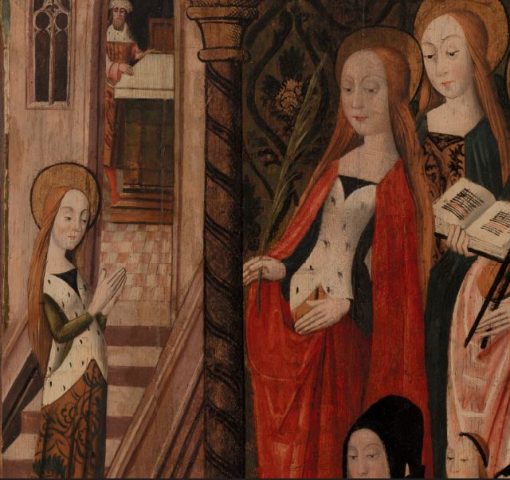The Remarkable Legacies of Ordinary Catholic Women, by Bronwen McShea

Becoming Catholic Together: Joining the Church at the Easter Vigil Is a Family Affair in Michigan, by Martin Barillas
April 1, 2024
The Group So Marginalized They Are Forgotten, by Anthony Esolen
April 1, 2024
Unidentified artist. Mary Going to the Temple, Four Female Saints, and a Female Donor and her Daughters. 15th century. Oil on panel
By Bronwen McShea, First Things, April 1, 2024
Excerpted and adapted from Women of the Church: What Every Catholic Should Know by Bronwen McShea. Published by Ignatius Press and the Augustine Institute. © Ignatius Press / The Augustine Institute. Used with permission.
The following is excerpted and adapted from Bronwen McShea’s new book, Women of the Church: What Every Catholic Should Know, out today from Ignatius Press and the Augustine Institute.




